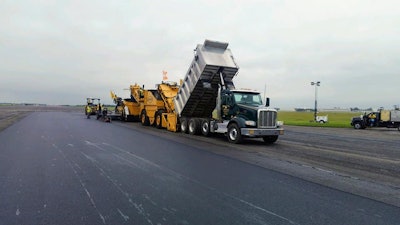
Ninety years ago, Congress enacted the Davis-Bacon Act (DBA) to set wage and benefit rates for construction workers supported through federal contracts at existing market levels and ensure that low-road contractors could not undercut the market by paying poverty wages.
The Acts govern wage requirements for contractors and subcontractors performing federally funded or assisted contracts in excess of $2,000. The federal government has long held that jobs created through government spending must pay decent wages and benefits, and the funds are administered through a survey process by the U.S. Department of Labor (DOL).
According to the DOL, the DBA covers nearly 148 million workers across 10 million work places across the country. Currently, the DBA sits at $217 billion in federally assisted construction spending each year and provides minimum wage protections for about 1.2 million workers.
The Bipartisan Infrastructure Law (BIL) makes historic investments in improving and building our nation's infrastructure and the “overwhelming majority” of BIL funds will be covered by the worker protections of the DBA. This includes billions of dollars to support investments in advanced energy technologies that will help raise standards for workers in these fast-growing industries while also taking steps to combat climate change through programs to build new charging infrastructure for electric vehicles, support clean water infrastructure, and reduce truck emissions at port facilities.
The dollars and workers falling under this act will only increase under the BIL and construction workers on these projects will need to be paid at least the local prevailing wage and fringe benefits required for the work they perform.
Recently, the DOL held a webinar to help contractors ensure they will be in compliance on the DBA on these projects.
5 Things to Know about Davis-Bacon from the Department of Labor
1. Davis-Bacon is a federal law that requires local prevailing wages be paid on most federal and federally funded construction contracts. The Davis-Bacon Act ensures that federal government funds elevate labor standards for construction workers across the country, and that taxpayer dollars are used to ensure local wage and benefit standards, allowing responsible contractors to compete for federally funded or assisted construction contracts.
2. If it’s a Davis-Bacon project, it requires Davis-Bacon wages. Construction workers working on Davis-Bacon covered construction contracts must be paid no less than the locally prevailing wages for all hours worked in each labor classification. If a construction worker on a Davis-Bacon project works in more than one labor classification, the contractor or subcontractor must pay the highest applicable wage rate for all hours worked or different wage rates based on the actual hours worked in each labor classification. Local wage determinations that list labor classification and wage rates are issued by the Wage and Hour Division of the U.S. Department and can be found at sam.gov.
3. Understand the wages owed to construction workers. Contractors and subcontractors on Davis-Bacon projects must pay their construction workers not less than the wages and fringe benefits listed on the wage determination for the work performed. To help ensure workers are paid the proper rates, workers, contractors and subcontractors should familiarize themselves with:
- where the work is being performed,
- the type of construction (building, residential, highway, or heavy), and
- the applicable labor classifications for the work being performed.
Any person who wants to determine if a project is covered by the Davis-Bacon Act or a Related Act or who has questions about their wages should contact the Wage and Hour Division or the federal agency funding the project.
4. Certified payroll reports help ensure workers are paid the correct wages for the work they perform. Certified payroll reports play a crucial role in ensuring that construction workers on Davis-Bacon projects are paid the proper wages for the work performed. Contractors and subcontractors must pay covered workers and submit a certified payroll report on a weekly basis. Contracting agencies may withhold contract funds if certified payroll records are not submitted or are submitted unsigned, and falsification of certified payroll reports can even lead to criminal penalties.
5. Education and compliance assistance on Davis-Bacon is offered by the Wage and Hour Division. The Wage and Hour Division offers compliance and educational materials on their website and at their toll-free helpline at 866-4US-WAGE (487-9243). For more information about the Davis-Bacon and Related Acts visit Government Contracts Toolkit.
What Projects Will Fall Under Davis-Bacon Act
According to The White House, the investments in the BIL will add, "on average, 800,000 good-paying jobs that will expand the middle class, revitalize our nation’s transportation, communications and utilities systems and build a more resilient, reliable and environmentally sound future."
The overwhelming majority of the funds in the BIL will be subject to Davis-Bacon requirements, which will ensure contractors pay workers on construction projects a fair, prevailing wage so that local wages, labor markets and workers won’t be undercut.
The White House says these requirements will "protect wages for millions of workers, grow the economy, and support good-paying, union jobs."
Projects that fall under DBA include:
Road, Bridge & Transport Projects
- Includes Surface Transportation Reauthorization Act and Surface Transportation Investment Act funding
- Provides funding to replace and repair bridges
- Includes major project competitive grant programs
- Funds nation’s transit system repair backlog
- Expands transit systems and supports clean transit
Airports, Ports & Waterway Projects
- Increases funds for airport improvement grants for runways, gates, and taxiways
- Provides funding for airport terminal improvement
- Improves air traffic control infrastructure
- Supplies funding for waterway and coastal infrastructure, inland waterway improvements, port infrastructure and land ports of entry
Water Infrastructure, Power & Grid Projects
- Increases funding for Drinking Water and Wastewater Infrastructure Act of 2021 and lead service line replacement
- Provides funding for grid reliability and resiliency
- Supports critical minerals and other supply chains for clean energy
- Includes funding for technologies like carbon capture, hydrogen, direct air capture, and energy efficiency
- And more.
Federal agencies and funding recipients must ensure that the Davis-Bacon labor standards clauses and applicable wage determinations are included in covered construction contracts The contracting agency/officer is required to include DBA requirements in any solicitation and in the contract for construction. In this sense, the contracting agency/officer identifies a project as subject to DBA requirements and is required to do so.
The BIL applies Davis-Bacon labor standards to federally-funded or assisted construction projects in three different ways:
- by adding funding to programs previously authorized by an existing Davis-Bacon Related Act (such as the Infrastructure for Rebuilding America program and the Drinking Water/Clean Water state revolving loan funds);
- by adding new programs under the umbrella of an existing Davis-Bacon Related Act (such as the new Bridge Investment program and the new Airport Terminal Improvement program); or
- by including provisions which expressly provide that Davis-Bacon labor standards apply to all construction projects receiving funding under particular programs created by or funded through the BIL. For example, construction projects assisted by funding made available under Division D or an amendment made by Division D of the BIL (Energy) are subject to Davis-Bacon requirements
Funding for construction projects authorized by the BIL requires certain actions on the part of federal funding agencies, funding recipients (such as state or local agencies), and construction contractors in order to ensure compliance with Davis-Bacon Related Acts.
Contractors & Subcontractors:
- All contractors must ensure that workers are paid the applicable prevailing wage, including fringe benefits, for all hours worked on a weekly basis. Learn more about Davis Bacon compliance principles;
- All contractors must also maintain an accurate record of hours worked and wages paid, including fringe benefit contributions, and submit certified payrolls on a weekly basis to the funding agency or funding recipient;
- Prime contractors must ensure that the Davis-Bacon labor standards clauses and applicable wage determination(s) are also included in all subcontracts;
- Contractors performing construction covered by Davis-Bacon labor standards must post an “Employee Rights under the Davis-Bacon Act” poster and the applicable wage determination at the site of the work in a prominent place where it may be easily seen by workers;
- maintain an accurate record of hours worked and wages paid, including fringe benefit contributions;
- submit certified payrolls to the contracting agency/funding recipient each week, within seven days of the payroll date for that workweek; and
- ensure that the required contract clauses and applicable wage determinations are incorporated into any lower-tier subcontracts.
Workers:
- Workers may review the “Employee Rights under the Davis-Bacon Act” poster and wage determination posted at their site of work to ensure they are being paid at least the applicable wage rate and fringe benefits for the work they perform on the project.
- Workers may contact the Contracting Officer listed on the poster or the U.S. Department of Labor’s Wage and Hour Division with questions about applicable wage rates or proper pay.
Wage Determinations Under Davis-Bacon Act
The Wage and Hour Division (WHD) recognizes that the BIL's historic commitment to funding infrastructure construction means that many funding recipients and contractors may be subject to Davis-Bacon prevailing wage requirements for the first time. WHD says they are ready to assist workers, contractors and contracting agencies, and ensure that they understand their rights and responsibilities under the DBA labor standards. The WHD offers annual seminars, online and virtual outreach and education to employers, employees, unions and other stakeholders. WHD can answer questions or take complaints in over 200 languages and is committed to vigorous enforcement of the requirements of all of the laws it enforces.
You can learn more about the prevailing wage determinations applicable to covered construction projects here.
The overwhelming majority of BIL funds are protected by the Davis-Bacon Act and contractors need to be aware of their participation in these projects. The government will also conduct enhanced oversight of federal contractors to prevent workplace discrimination, and recent actions by the Biden administration include creating a Good Jobs Initiative to provide information and resources to improve job quality across the private sector; raising the contractor minimum wage to $15 per hour; and enhancing cooperation between the government agencies to protect workers that exercise their labor rights from illegal retaliation.



















